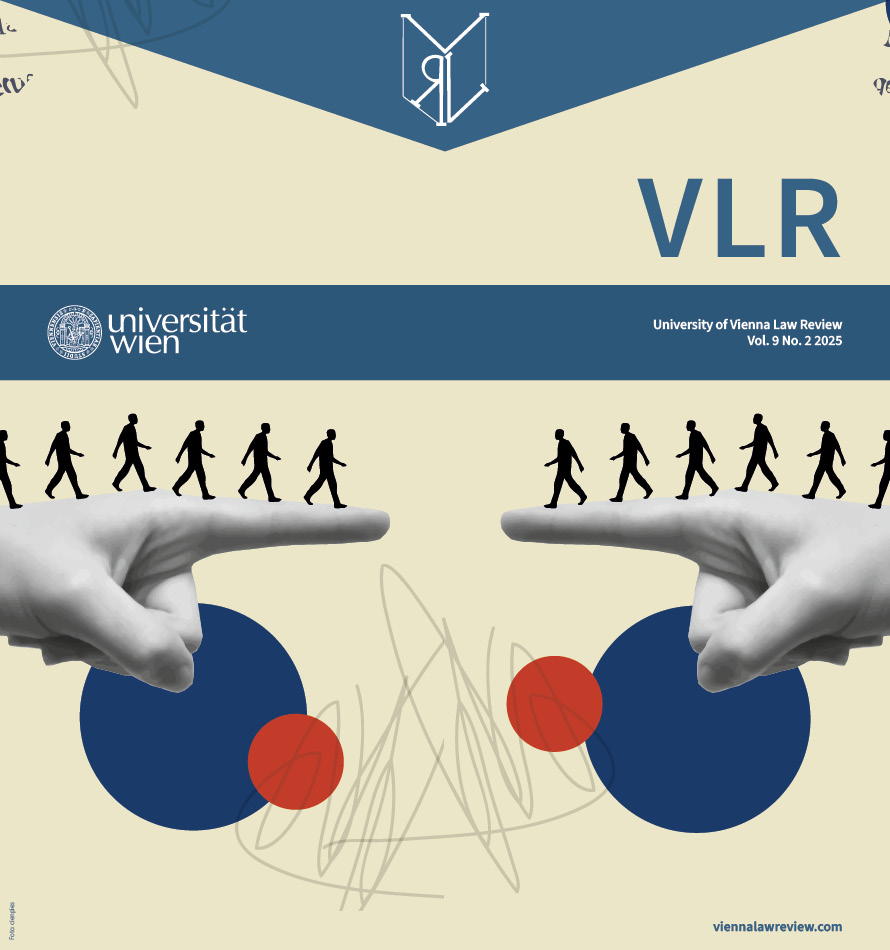Toxic Unilateralism
How the EU’s Unilateral Trade-Related Measures Drive Polarization in Global Trade Relations
DOI:
https://doi.org/10.25365/vlr-2025-9-2-50Keywords:
unilateralism, multilateralism, international trade, polarizationAbstract
Trading powers such as the European Union and the United States are increasingly using unilateral trade-related measures to protect national security or mitigate the effects of climate change. At the same time, global trade relations are becoming more polarized, marked by ideological divides and contrasting economic policies. These trends suggest a shift from the cooperative multilateralism of the World Trade Organization to unilateralism, which risks geoeconomic fragmentation and complicates solutions to global challenges.
Unilateralism, defined as action by a single polity without international consent, both responds to and exacerbates polarization, creating a vicious cycle of tit-for-tat measures. This “toxic” unilateralism disrupts trade and investment activities, realigns alliances, marginalizes developing economies, and undermines compliance with multilateral rules. As confidence in the multilateral system erodes, cooperation on global issues weakens.
The paper examines these dynamics by analyzing EU policies such as the Carbon Border Adjustment Mechanism and the Anti-Coercion Instrument. It draws lessons from the 1920s and 1930s, a period of economic nationalism and protectionism. It argues that, while unilateral action can address pressing issues, multilateralism remains essential for stability, predictability, and effective global cooperation.
Downloads
Published
Issue
Section
License
Copyright (c) 2025 Sophie Bohnert

This work is licensed under a Creative Commons Attribution-NonCommercial-NoDerivatives 4.0 International License.
All articles are licensed under the Creative Commons License CC BY-NC-ND. A summary of the license terms can be found on the following page:
https://creativecommons.org/licenses/by-nc-nd/4.0/
Authors retain copyright without restrictions.


